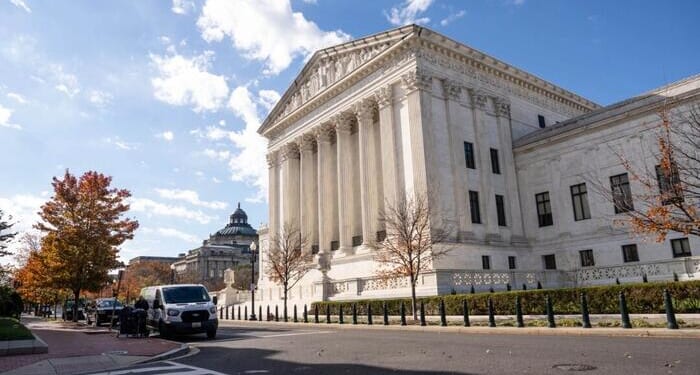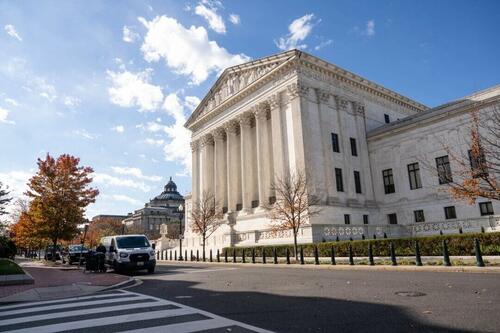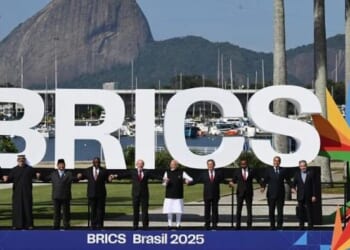Authored by Matthew Vadum via The Epoch Times,
The U.S. Supreme Court decided on Nov. 10 to consider a challenge to a federal law that blocks states from counting mail-in ballots that officials receive after Election Day.
The court granted the petition in Watson v. Republican National Committee in an unsigned order on Nov. 10. No justices dissented.
The Republican National Committee, the state Republican Party, and the state’s Libertarian Party sued over the law.
Eighteen states accept mailed ballots received after Election Day if they bear a postmark from on or before Election Day, according to a National Conference of State Legislatures report.
Mississippi Secretary of State Michael Watson filed the petition with the Supreme Court in June.
Federal election law sets the Tuesday after the first Monday in November every four years as “the ‘election’ day for federal offices,” the petition said.
Mississippi law requires that ballots for federal offices have to be marked and filed with election officials by that day, but also permits ballots to be counted if election officials received them within five business days after Election Day.
The U.S. Court of Appeals for the Fifth Circuit ruled that the federal law requiring ballots to be cast and received by election officials by Election Day preempts—or prevails over—Mississippi law.
The Fifth Circuit’s decision “defies statutory text, conflicts with this Court’s precedent, and—if left to stand—will have destabilizing nationwide ramifications.” Five circuit judges said in dissent from a denial of rehearing that the ruling is “deeply wrong and raises an issue of exceptional importance,” the petition said.
In a related case, the Supreme Court seemed receptive on Oct. 8 to a Republican congressman’s argument that he should be allowed to challenge an Illinois law that allows the counting of ballots for two weeks after Election Day.
Arguments in the case, known as Bost v. Illinois State Board of Elections, focused on the question of legal standing, as opposed to the merits of the lawsuit contesting the Illinois statute.
Standing refers to the right of someone to sue in court. A party must show a strong enough connection to the claim to justify participating in a lawsuit.
If the lawmaker wins at the high court, his stalled lawsuit would be reinstated and would continue its journey in the lower courts.
The oral argument in the case has not yet been scheduled, but is likely to take place early in 2026.
A ruling would likely come by the end of June 2026, in time for the mid-term elections.
Loading recommendations…


















